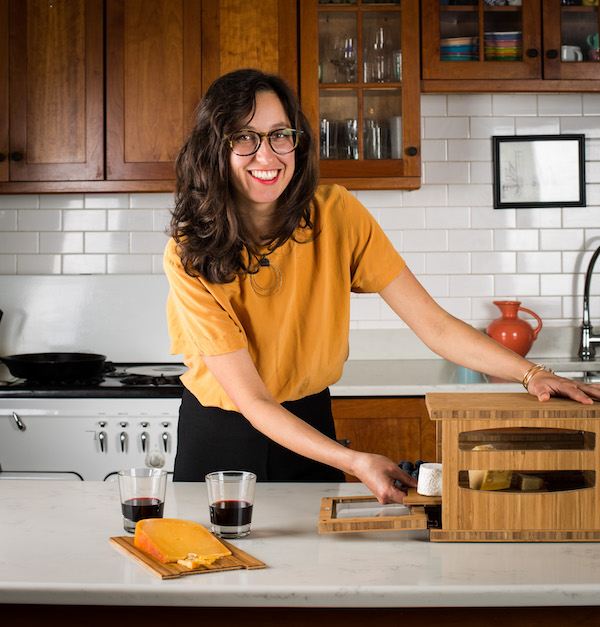Jessica Sennett
Courtesy of Cheese Grotto
AGE || 31
COMPANY NAME || Cheese Grotto
JOB TITLE || Founder
COMPANY START DATE || November 2016
YEARS LIVING IN NEW YORK || 6
SOCIAL HANDLES || @cheesegrotto
COMPANY WEBSITE || Cheese Grotto
What did you want to be when you were a child?
That probably changed year upon year. I had many curiosities. My first would have been a veterinarian. Also, growing up in San Francisco I was surrounded by the amazing food culture. As a young adult that definitely impacted me from an early age.
What’s the best piece of advice you were given when you were starting Cheese Grotto?
You have to have a sense of urgency when you start a business. You have to be able to naturally address the idea that you’re putting out and really commit to it. When I first started out I met with a future mentor. While I was still at the New School he told me you have something here and that I could make this my living. He understood the sense of urgency and the need for what I wanted to create.
How did you come up with the idea of Cheese Grotto?
I’ve been a cheese specialist for 13 years. There isn’t a school or designed field for this. I worked as both a cheesemaker and cheesemonger for different companies. My customers didn’t understand the nature or importance of storing these cheese products. So I came up with this idea that would help them understand the product more and help them to better enjoy their experience. It was initially to help capture the essence of the regionality and make that a more accessible aspect to the consumers. It was about capturing the sentiments and functionality.
Courtesy of Cheese Grotto
What’s the most important thing you’ve learned since starting out?
Everything always takes longer that you anticipate and it’s always necessary to adjust your expectations. Just keep coming back to the essential mission and value of your company. There is a giant learning curve but just keep that message at the forefront to remind yourself why you’re doing this.
How do you define success?
I would define it as being fulfilled by your working life while being able to make a decent living.
How do you overcome moments of self doubt?
It comes down to not being afraid to ask for help. In my experience there is a hesitation or shame for women in business asking for help. Build a network around you to help in these moment so you don’t feel alone. Also, taking a step back to find a balance helps you make the right decisions. It’s just a matter of timing and the network you build.
Which women inspire you?
There are a lot of women right now that are inspiring. There’s a lot happening in politics right now and I have a lot of respect for them..Women like Kamala Harris and Alexandria Ocasio-Cortez. Those are two women in politics I respect a lot. It’s inspiring to see women not taking no for an answer, saying what needs to be said, and not being afraid to do that.
Courtesy of Cheese Grotto
What is your workspace like?
I have a home office set up right now in my apartment in Brooklyn that I work out of. Then for meetings and things like that I’ll usually go to cafes.
What are some of your goals moving forward for Cheese Grotto?
We just started our wholesale program. This year it’s about getting the cheese grotto more available to certain select retailers. The main goal for me is to keep developing the community around cheese, especially online. There’s a lot of resources that can be shared and a lot of education that needs to happen. That’s an important piece in the success of Cheese Grotto. Just growing the available information and education around cheese. It’s a focus to develop a large ecommerce community that’s interested in learning about cheese. There’s a strong movement and growth in the specialty cheese industry, like a 6.6% growth rate.
What advice would you give to other women trying to enter your field?
The most important thing is to make sure the product that you're developing is something that solves a problem as well as something that's cool. If you can capture authenticity, the cool factor, and you're solving a problem, then that's this really powerful trio where you're relevant in multiple situations. If you can get that three prong then you can really cultivate a brand relationship with your customers.
This interview has been edited and condensed for clarity.


